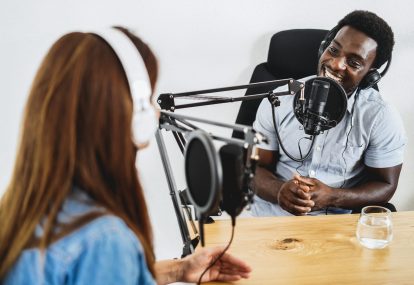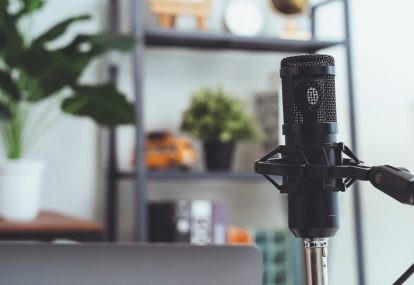If you are considering joining the podcasting world, you’d be glad to know you are not alone. Nowadays, so many people have joined the podcasting bandwagon that the phrase “golden age of podcasting” has become almost cliche.
Since podcasting is pretty much straightforward, it’s something you can easily get into given you have the right tools. While recording a podcast in a studio is deemed one of the best options, that might be a bit too much for those who have yet to secure sponsorships.
However, even if you have killer content, you still need to have the right tools if you want to get your efforts off to a great start. While you’ll be needing several tools and software, consider it wise to secure the best podcast recording software you can get your hands on first. Some of 2019’s best include:
Audacity
If there’s a popular go-to tool for new and seasoned podcasters alike, it has got to be Audacity. Audacity is an open-source and free software for Linux, Mac, and Windows. Aside from the fact that it comes equipped with really powerful features, Audacity comes with a price that’s hard to beat.
To say Audacity is a powerful audio editor is almost an understatement. For starters, the tool allows user to add fades, splice sounds, trim and delete clips, and so much more. However, just like most powerful tools, it also comes with a few downsides.
One of the intimidating things about Audacity is it’s interface. It’s safe to assume using Audacity will require some learning curve. The good news is there is no shortage of manuals, tutorials, and other support materials available online so you have easy access to all the help you need.
Adobe Audition Creative Cloud
If you’re willing to splurge in an expert-level podcast production software, Adobe Audition Creative Cloud is one of the best options you have at your disposal. This tool is also considered ideal for those who already have subscriptions to other apps that it can seamlessly integrate with.
One of the features that sets the Adobe Audition apart from the rest is its powerful audio restoration function. It is also considered stellar at getting rid of stray sounds and other unwanted background noises.
While it comes with more features than you’ll probably ever use, it’s reassuring to know it has presets that can help users focus on enhancing certain types of audio. It also allows users to load up a template that sets up settings and tracks in a way that’s optimised and relevant for podcasts.
While Adobe Audition comes with features that are hard to beat, it has no MIDI or music scoring tool support. That being said, it’s strength is more on sound quality and audio editing as opposed to music creation.
GarageBand
If you’re a Mac user, this is something you’re surely familiar with. GarageBand is loved and known for being an accessible and intuitive music creation tool. And yes, it can also be a very effective for podcast recording.
With GarageBand, you can use a simple podcast-oriented template, complete with musical jingles, sound effects, and tracks that are optimised for both the male and female voices.
It also has an interface that’s designed for drag-and-drop music composition so it makes it very easy to adjust and arrange recorded elements while also adding customised musical touches.
For those who find GarageBand too basic for their needs, Apple’s Logic Pro X would be a welcome alternative. It comes with a paid and full-featured DAW that’s not only easy to use but also reasonably priced.
What podcast recording software do you swear by? What has been your experience so far? We’d love to hear about it!
Share this post!




